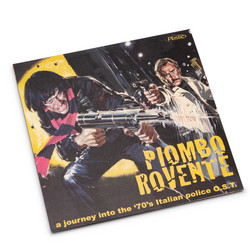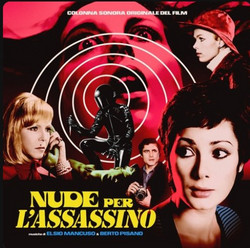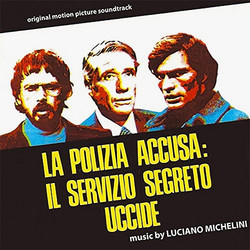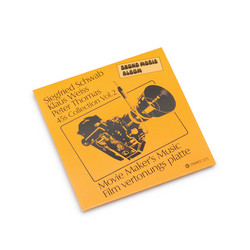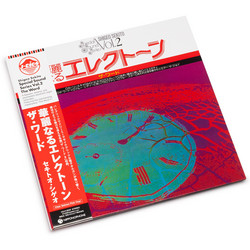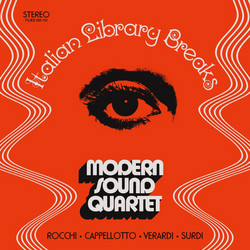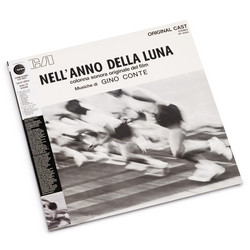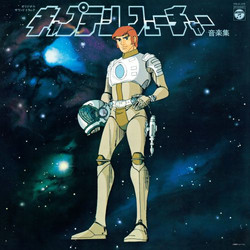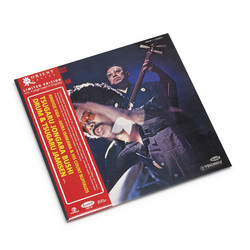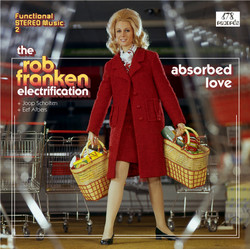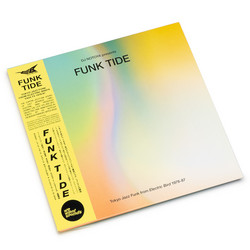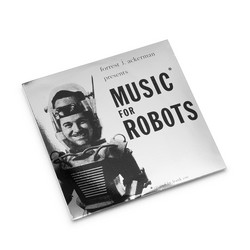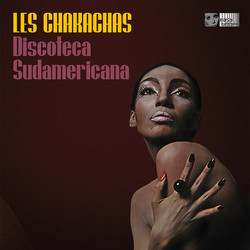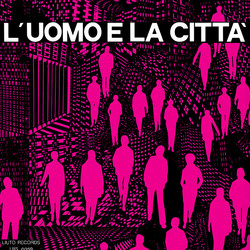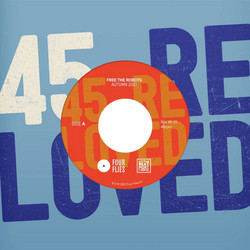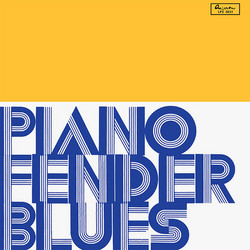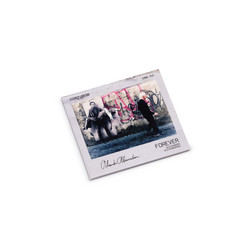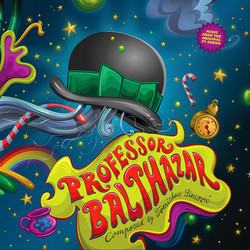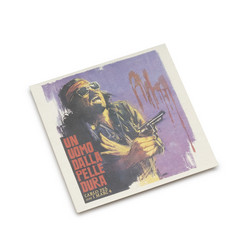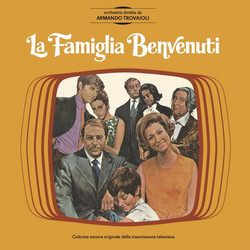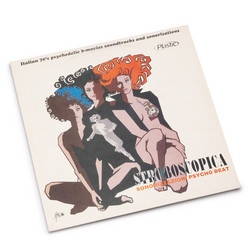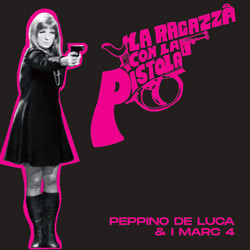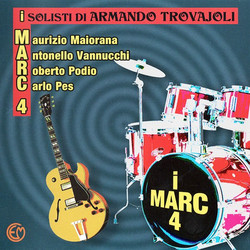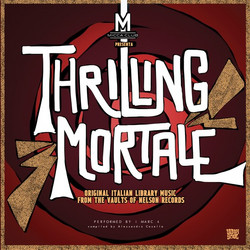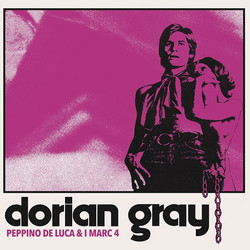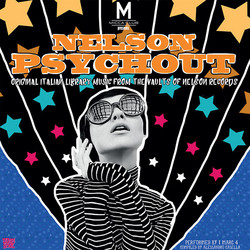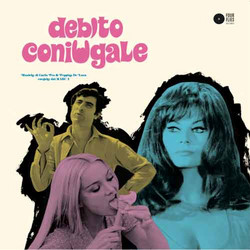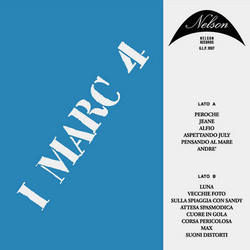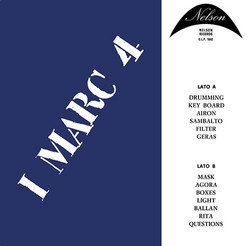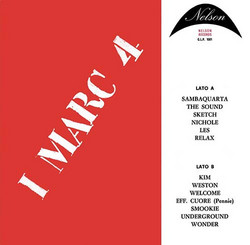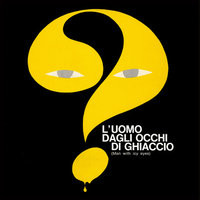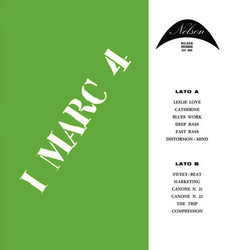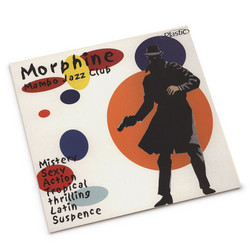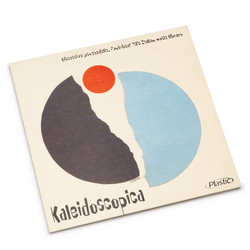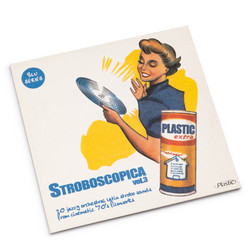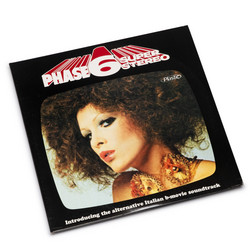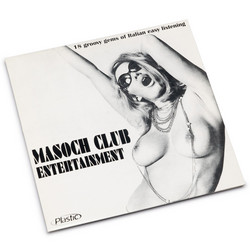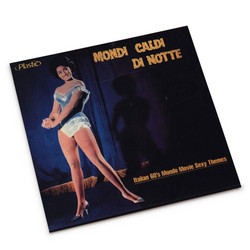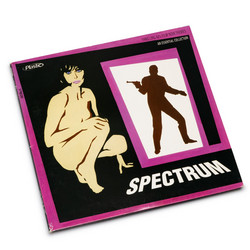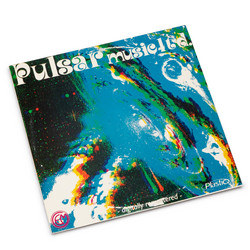I Marc 4
I Solisti Di Armando Trovajoli (LP)
Lucky Restock - Limited Quantities Please note: these are original copies that may show minor sleeve wear due to long-term storage. The vinyl is in excellent condition. Circa 1950, four musicians orbiting the RAI orchestra in Rome had what they later described as "a brilliant idea": to name their group using the initials of their own names. From Maurizio Majorana (bass), Antonello Vannucchi (Hammond organ and piano), Roberto Podio (drums and percussion), and Carlo Pes (guitar) emerged "I Marc 4" - a name that would become synonymous with the golden age of Italian library music.
But there was always a fifth initial lurking in that acronym. Sometimes the "A" stood not for Antonello but for Armando - specifically Armando Trovajoli (1917-2013), the Roman-born composer whose keyboard work propels I Solisti Di Armando Trovajoli into the stratosphere. Originally released on SR Records (catalog SP 112) in 1969, this album captures the precise moment when Italian library music achieved escape velocity: the tracks are ostensibly functional - background music for television, advertisements, industrial films - yet they pulse with a life that transcends utility entirely.
Trovajoli arrived at this session with credentials that spanned the entirety of Italian postwar culture. A child prodigy who played violin from age four and piano from six, he graduated from the Santa Cecilia Conservatory and emerged in the 1940s as a jazz pianist who performed alongside Duke Ellington, Louis Armstrong, Miles Davis, Charlie Parker, and Django Reinhardt. His 1951 composition "El Negro Zumbón" for Alberto Lattuada's film Anna - lip-synced and danced by Silvana Mangano - became an international sensation. Over the following decades, he composed more than 300 film scores, working with Vittorio De Sica, Dino Risi, and Ettore Scola, while also creating the enduring musical Rugantino (1962), whose "Roma Nun Fa' La Stupida Stasera" became an unofficial anthem of the capital. His music appeared in Quentin Tarantino's Kill Bill: Vol. 1, and upon his death in 2013, Rome's mayor Gianni Alemanno described him as "the voice of Rome" that had been extinguished.
Carlo Pes (1927-1999), the Sardinian-born guitarist who anchors the Marc 4 sound, brought equally impressive credentials. He debuted in 1945 alongside Enrico Simonetti and Bruno Martino, then spent the following decade playing with Lionel Hampton, Stan Getz, Django Reinhardt, and Toots Thielemans. Beyond his session work, Pes became a celebrated songwriter: his "Il Mondo" for Jimmy Fontana remains an evergreen of Italian popular music. His brother Paolo played double bass, and the two spent formative years in Brazil absorbing the bossa nova and samba rhythms that permeate so much Marc 4 material.
Majorana and Podio had known each other from performing jazz with a young Lucio Dalla before joining forces with Vannucchi, who came from the Quartetto di Lucca and brought a Hammond organ style that would become the group's signature. As a study group attached to RAI, they quickly found themselves in demand by the era's greatest soundtrack composers: Ennio Morricone, Nino Rota, Piero Piccioni, Piero Umiliani, Gianni Ferrio, and Alessandro Alessandroni all relied on the Marc 4's combination of precision and swing.
I Solisti Di Armando Trovajoli crystallizes the group's approach: tracks like "Hyde Park," "Piccadilly Circus," "Regent Street," and "Trafalgar Square" suggest a Londoner's A-Z reimagined through Roman sunglasses, while "Mato Grosso" and "Lua Linda" nod to the Brazilian influences that informed so much Italian easy listening of the period. The keyboards - variously funky organ, jangly electric harpsichord, and sharp-edged piano - shift texture constantly, augmented by extra horn work that pushes the arrangements toward something grander than typical library fare.
The SR Records label that originally released this album was itself a crucial node in Italian library music history. Founded as SERMI by Sergio Pagoni and Michelangelo Cunsolo (the name derived from their initials), the label partnered in the early 1970s with Bruno Nicolai - Morricone's music director and owner of the Gemelli label. SR Records became one of the first Italian companies to invest seriously in production music for television, releasing essential albums by Alessandro Alessandroni, Francesco De Masi, and Giovanni Tommaso before disbanding in 1976 into three separate entities: Cometa, Sermi, and Gemelli.
The Marc 4's influence extends far beyond the crate-digger circuit. Their music has been sampled by Just Blaze, and acid jazz icon Nicola Conte has championed their work. Most recently, their 1976 track "Summer in Love" - featuring the ethereal vocals of Edda Dell'Orso - appeared in the Fallout television series, introducing a new generation to the group's particular blend of sophistication and groove.
Plastic Records' reissue returns this essential document to circulation. As one Discogs reviewer noted: "Legendary does not even come close - these guys propelled Trovajoli's compositions into the stratosphere and he certainly would not have become so highly regarded without them."

